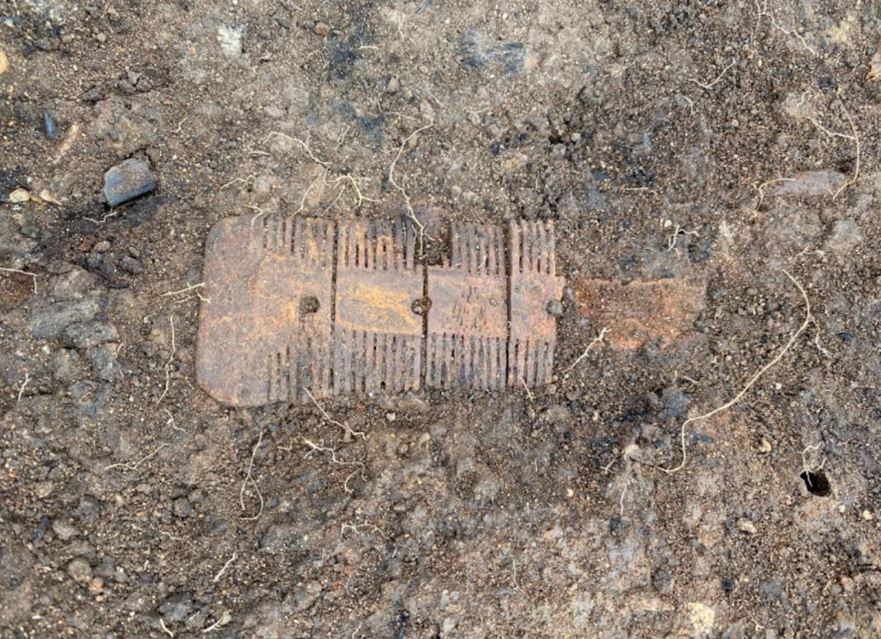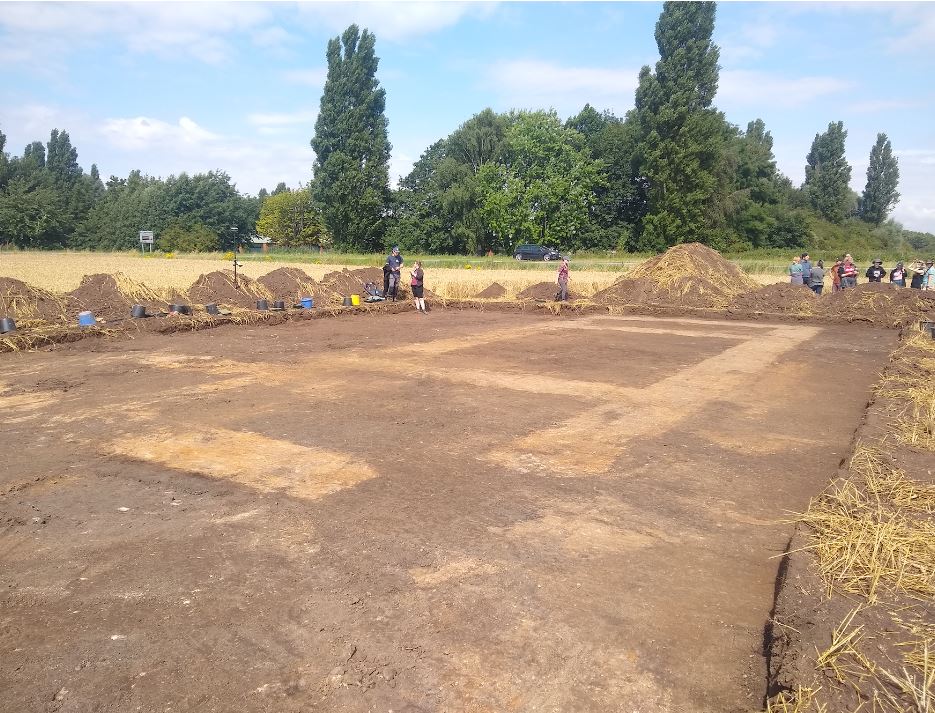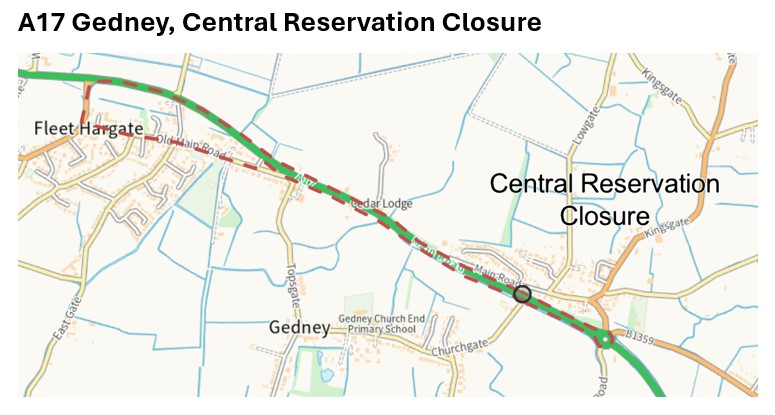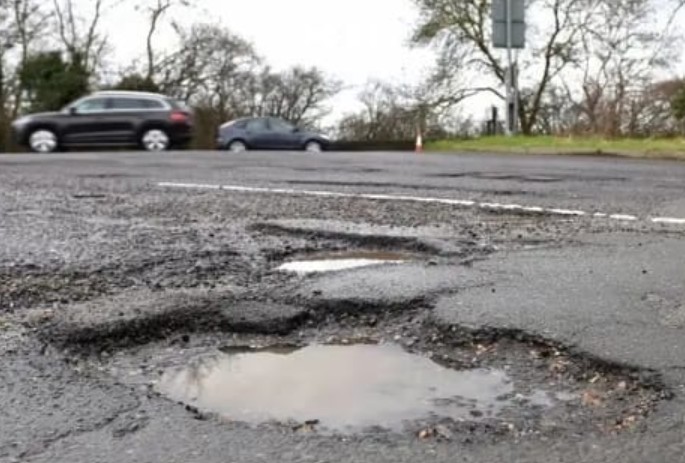A seventh century comb, a rare Medieval hall and the possible remains of a church were among the finds after archaeologists examined a site near Crowland while looking for the former retreat of the legendary St Guthlac.
Around 25 students from Newcastle University and the University of Sheffield excavated Anchor Church Field last month and they made a host of interesting discoveries.
They were drawn to the area by the legend of St Guthlac who lived from 674 until 714 and who was renowned at the time for dedicating his life to Christianity having moved to Crowland which was then an island among the marshes.
The town’s abbey was built in his honour after his death by Aethelbald, King of Merica.
Archaeologists targeted Anchor Church Farm as a biography written shortly after St Guthlac’s death said he lived at a site in the side of a prehistoric burial mound, the likes of which there’s evidence of at the site.

Led by Dr Duncan Wright (Newcastle University) and Dr Hugh Willmott (University of Sheffield), the team focussed their trench on the remains of a large building that is visible from the air as markings on the ground.
This building was previously thought to represent a medieval chapel, but the group’s excavations showed instead it is in fact a medieval hall.
They also found items that would have dated from around the same time as St Guthlac and some even earlier including from Roman times.
Dr Wright, a lecturer in Medieval Archaeology at Newcastle University, said: “Excitingly, our excavations this year discovered a rich collection of finds from the Guthlac period, including pottery and an elaborate bone comb.
“While these objects cannot be definitively associated with the saint, they add further weight to the idea that Anchor Church field was indeed the location of Guthlac’s fenland retreat.”
On the medieval hall, the archaeologists say this structure would have been used as a residence, and was divided into three parts with an ancillary room added to one corner.
“The foundations of this hall were roughly one metre wide, suggesting a substantial stone building that would have had a first floor,” Dr Wright continued. “Both the scale of the construction, and the recovery of finds such as an intricate buckle and glazed roof tiles, all suggest this was a building occupied by elite members of medieval society.
“Such halls can be broadly dated to between the 12th and 15th centuries, although our investigation this year will allow us be more specific; the recovery of preserved wood from a gully running alongside a wall can be used for radiocarbon dating, and this should allow us to date the building more closely.
“Elsewhere on the site, significant quantities of Roman floor tile and roof tiles, as well as Roman tesserae – small ceramic cubes used to create floors – were found.
“These finds do not necessarily indicate a Roman presence, though.
“Instead, it appears that these materials had been taken from nearby Roman sites to be reused in building construction, a magpie-like practice that was common in the early medieval period (c. 400-1100AD).
“Some of this reused Roman material may have been invested in another building, found at the very east of the excavation in the final few days of the project.
“This building, orientated in an west-east direction, seems to have featured a number of large columns and there is a possibility that it represents the remains of a church or a succession of churches.
“Further analysis is required to fill out the picture gained by the excavations, but we plan to return in 2022 to answer further questions about this hugely important archaeological site.
“The team would like to extend their thanks to John Beeken and family for allowing us to work on their land, and to Matthew and Helen Alcock of Crowland Caravans and Camping for their support of our project.”







